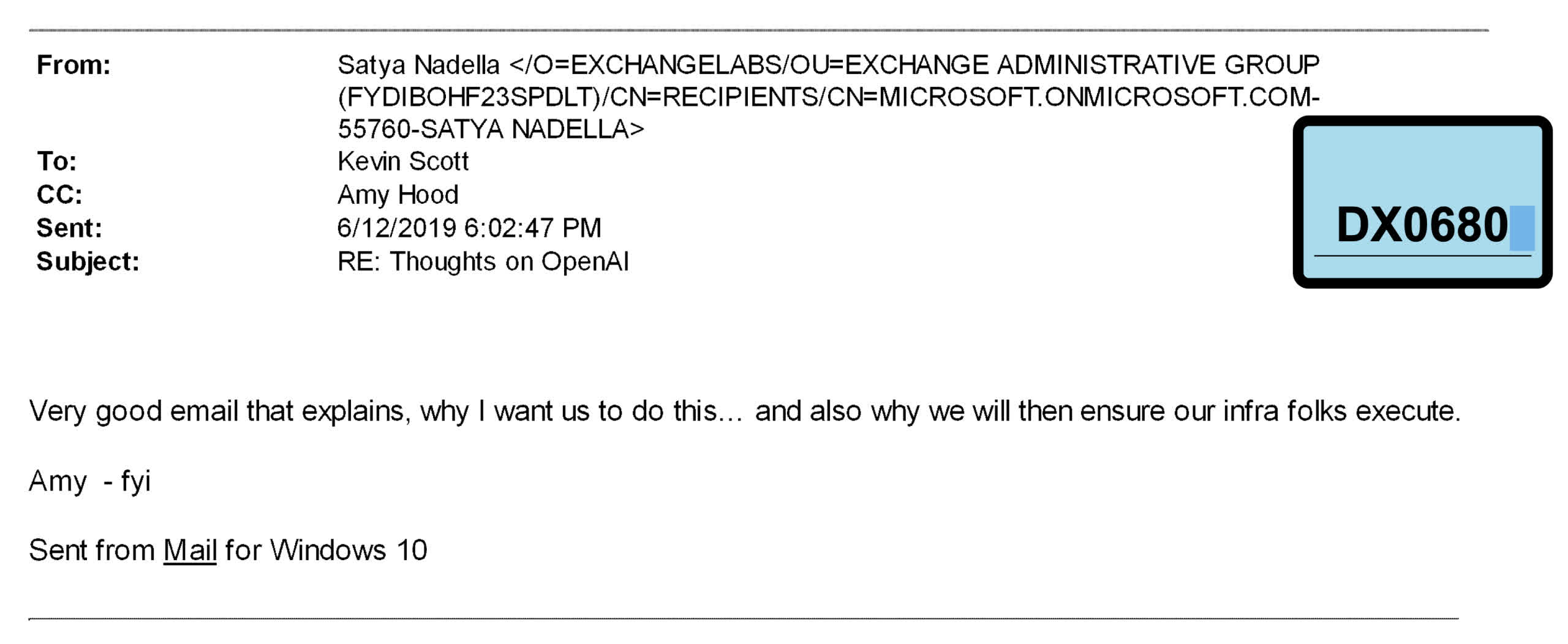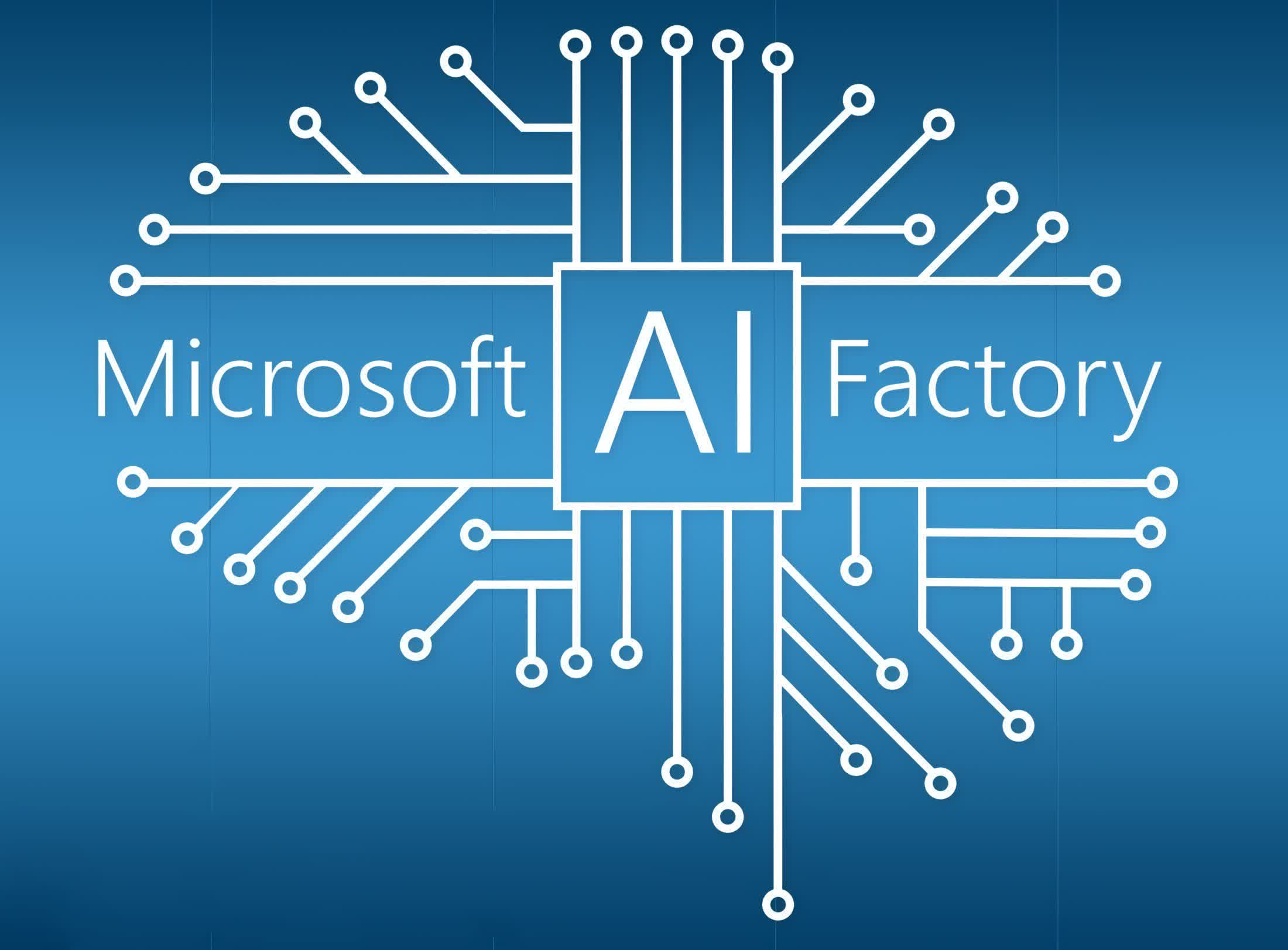In a nutshell: A recently unsealed document from the DoJ’s antitrust lawsuit against Google reveals that Microsoft rushed its investment in OpenAI for fear of falling too far behind the search giant to catch up. The document was an email exchange between Redmond’s top executives.
In June 2019, Microsoft CTO and Executive Vice President of AI Kevin Scott initiated the email thread with the subject line, “Thoughts on OpenAI.” He addressed it to CEO Satya Nadella and company co-founder Bill Gates. Most of the email was redacted, but what came through was Scott’s concern that he had misjudged Google’s AI efforts and that Microsoft was on the verge of being too far behind.
He initially dismissed Google’s many efforts in the AI market as a competition with others to develop the “most impressive game-playing stunt.” Presumably, he was referring to the various game-playing bots at the time that were beating humans at titles like Quake III and StarCraft II.
“That [his dismissal] was a mistake,” Scott said. “When they took all of the infrastructure that they had built to build NLP [natural language processing] models that we couldn’t easily replicate, I started to take things more seriously.

Scott looked into anything he could find on Google’s AI research, searching for “capability gaps” in model training between Microsoft and Google. What he found got him “very, very worried.” He called the search giant’s autocomplete feature in Gmail “scarily good.”
Bing’s vision and speech research teams were too small and underfunded to compete with Google. Scott noted that even if they were to grow and supply those teams with more resources, “they [would] still have to go through a learning process to scale up,” adding that they were already “multiple years behind.”
The rest of the email is redacted, but it likely pertains to a potential investment in OpenAI, considering his subject line and the company’s subsequent actions.
“Very good email that explains, why I want us to do this [invest in OpenAI],” Nadella replied while cc-ing Microsoft Chief Financial Officer Amy Hood in the June 2019 email. “And also why we will then ensure our infra folks execute.”

Only a few weeks later, Microsoft infused OpenAI with its first billion dollars and has since invested billions more. Their partnership raised red flags that Redmond might be at the helm of OpenAI without calling it an acquisition. The EU opened a probe into the deal but determined that Microsoft’s $13 billion in investments didn’t constitute an acquisition.
Ironically, Microsoft’s now-outed partnership with OpenAI caused Google to panic. The company issued a “Code Yellow,” which ordinary people might call “Code Red’ Or “DEFCON One.” Under this alert, Google will call staff to work on a problem or project even if those employees are engaged with other undertakings.
The New York Times reports that Sundar Pichai said internal teams and staffers were “upended” to respond to the perceived threat of an OpenAI/Microsoft partnership. The chaos ultimately ruined the Bard project. Google finally settled down after combining DeepMind’s Bard and Duet AI research teams to create Gemini last year.

